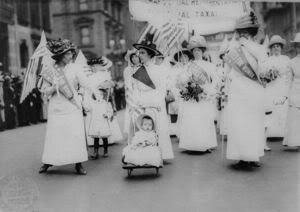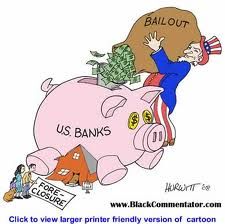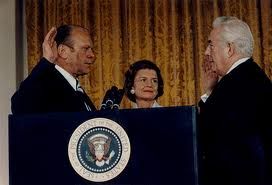Coming to a country near you:
London Sees Twin Perils Converging to Fuel Riot
Frustration in this impoverished neighborhood, as in many others in Britain, has mounted as the government’s austerity budget has forced deep cuts in social services. At the same time, a widely held disdain for law enforcement here, where a large Afro-Caribbean population has felt singled out by the police for abuse, has only intensified through the drumbeat of scandal that has racked Scotland Yard in recent weeks and led to the resignation of the force’s two top commanders.
The riot was the latest in what has turned out to be a season of unrest in Britain, with multiple demonstrations escalating into violence in recent months. And there was not long to wait until a new one erupted: across London, skirmishes broke out on Sunday between groups of young people and large numbers of riot police officers, which one officer said were drawn from forces around London.
snip
Economic malaise and cuts in spending and services instituted by the Conservative-led government have been recurring flashpoints for months.
Late last year, students demonstrating against a rise in tuition fees occupied a building near Parliament and clashed repeatedly with the police. Prince Charles and his wife, Camilla, the Duchess of Cornwall, were attacked in their Rolls-Royce as protesters – some of whom were subsequently jailed – shouted “Tory scum,” a reference to the Conservative Party’s traditional links with the aristocracy, and “off with their heads!” In March, a reported 500,000 people marched against the cuts, with some protesters occupying the exclusive food store Fortnum & Mason – Prince Charles’s grocer.
On Saturday night, as rioters in Tottenham threw fireworks and bottles at police officers, one man shouted, “This is our battle!” When asked what he meant, the man, Paul Rook, 47, explained that he felt the rioters were taking on “the ruling class.”
There are more reasons for this rioting and goes to the heart of the Cameron government’s austerity that has cut the social safety net for the very poor and unemployed who are mostly minorities.
Like many European cities, London is in the midst of serious fiscal inadequacies, and poor neighborhoods such as Tottenham and Hackney have suffered the most. Unemployment is rampant in such areas, especially in North London.
“Tottenham is a deprived area,” recently laid-off Uzodinma Wigwe told Reuters. “UnemploymentMetro police, as well as a private agency, are investigating the riots and the shooting.
The violence has marred otherwise peaceful rallies in London against government austerity measures.
In March, isolated clashes erupted in London between police and protestors marching from Piccadilly Circus to Hyde Park to Parliament. Police fired tear gas on the protestors, who in turn threw rocks, bottles, paint and light bulbs filled with ammonia at the police officers. That clash injured 31 police officers and led to the arrest of 214 people.
snip
Earlier in the year, student protests against a tuition hike also turned violent, with students and police clashing on London streets. Demonstrators broke out shop windows and attacked Prince Charles’ Rolls Royce as it rolled down Regent Street. is very, very high … they are frustrated.”
“We know we have been victimized by this government, we know we are being neglected by the government,” said a middle-aged man who declined to give his name. “How can you make one million youths unemployed and expect us to sit down?”
Unemployment here in the US hovers around 9.1%, among African Americans it is 15.9%, nearly double that of unemployed whites (8.1%). While not nearly as bad as 1982 when unemployment for Afican Americans soared to 19.2%, the wealth gap has widened dramatically
ndeed, blacks have suffered disproportionately in the ongoing crisis, since they have lost tens of thousands of manufacturing jobs and endured huge cuts in public sector spending. Black teenagers bear the worst of it – their jobless rate is at a staggering 39.2 percent (versus 23 percent for white teenagers).
According to a recent study by the National Urban League (NUL), almost all the financial/economic gains that blacks have accomplished over the past three decades were wiped out by the Great Recession.
The economic collapse is not only thinning the ranks of the black middle class, but has likely condemned millions more to permanent poverty.
The NUL report further indicated that the nation’s housing crisis has disproportionately hurt black home ownership, which “has fallen at three times the rate of white home ownership.”
These are the same factors that have sparked the violent unrest in England. The president and congress would be wise to cease the talk about spending cuts and talks of more austerity and pay more attention to job creation. The US has seen this many times in it’s 235 year history, the most recent during the 80’s and 90’s when the socio-economic disparity was high as it is now. It is has been proved historically that putting people back to work correct the deficit and reverse the spiral towards recession.
 We in the US take the two party system for granted, but a two party system is not normal among advanced industrial countries. And, in our history, we used to have a lot more third parties with a lot more impact on our political system in the US. What happened?
We in the US take the two party system for granted, but a two party system is not normal among advanced industrial countries. And, in our history, we used to have a lot more third parties with a lot more impact on our political system in the US. What happened?


Recent Comments